Simplifying Meal Planning After Bariatric Surgery
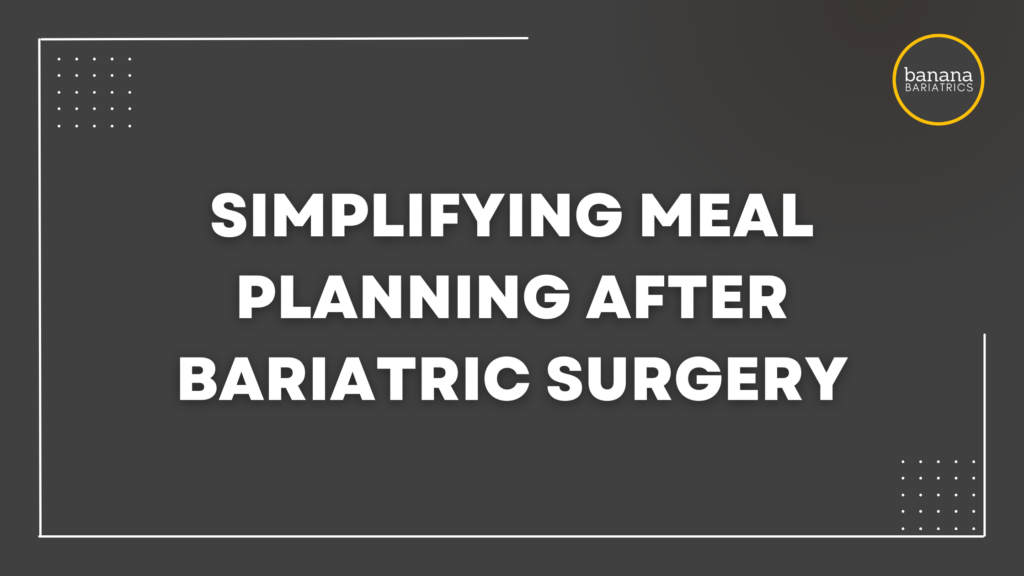
Improving your health and wellness after bariatric surgery involves making significant lifestyle changes, particularly in the way you approach your diet. Meal planning after bariatric surgery is a critical element in this transformation, ensuring that you not only adhere to the nutritional guidelines necessary for recovery and weight loss but also embrace a sustainable, healthier way of living. From understanding the importance of portion control and nutritional balance to overcoming common meal prep pitfalls and discovering the joy in simple, flavorful dishes, this blog post will provide you with the strategies, tips, and meal ideas you need to make meal planning after bariatric surgery a cornerstone of your healthy lifestyle.
Meal Planning Strategies
Planning your meals is the cornerstone of a nutritious diet after bariatric surgery. Here are some strategies to streamline the process:
- Weekly Meal Planning: Dedicate a time each week to plan your meals. Consider your schedule and upcoming events that might affect your meal times.
- Grocery Shopping List: Create a shopping list based on your meal plan. Organize it by food categories to save time during your shopping trips.
- Portion Control: Use measuring tools to ensure your meals meet the recommended guidelines, helping you adjust to your new stomach capacity.
- Mindful of Nutritional Balance: Incorporate a variety of nutrients into your meals, focusing on high-protein, vegetables, and fruits while minimizing high-carb and sugary foods.
Avoiding Common Pitfalls in Meal Prep After Bariatric Surgery
Overcomplicating Meals
One of the biggest pitfalls is making meal prep more complicated than it needs to be. Stick to simple recipes with a few ingredients to save time and reduce stress. Complicated meals can lead to frustration and a higher likelihood of giving up on meal prep altogether.
Ignoring Portion Sizes
After bariatric surgery, your stomach’s capacity is significantly reduced. It’s essential to focus on portion control to avoid overeating and stretching your stomach. Use smaller plates, bowls, and cups to help control portion sizes naturally.
Skipping Meal Variety
Eating the same meals repeatedly can lead to boredom and nutritional imbalances. Ensure your meal prep includes a variety of foods to keep things interesting and to provide a wide range of nutrients. Rotate your protein sources, vegetables, and whole grains to maintain enthusiasm for your meals.
Forgetting to Plan for Snacks
Snacks are an important part of your diet post-surgery, helping to maintain energy levels and prevent overeating at meal times. Include healthy snack options in your meal prep, such as cut-up vegetables, fruit portions, or small servings of nuts and cheese. Having these ready-to-eat options prevents reaching for unhealthy snacks.
Neglecting Hydration
Focusing solely on solid food and forgetting about hydration is a common mistake. Staying hydrated is essential, especially after bariatric surgery, to help digestion and avoid dehydration. However, remember to drink fluids between meals, not during, and avoid carbonated beverages. Aim for >64oz of water daily.
Underestimating the Power of Spices and Herbs
Meals can become bland if you’re not using a variety of seasonings. Spices and herbs add flavor without adding calories, making your meals more enjoyable and satisfying. Experiment with different combinations to find what you like best, and don’t be afraid to try new spices to keep your meals interesting.
Not Storing Meals Properly
Improper storage can lead to spoiled meals, wasting both food and effort. Invest in good-quality, airtight containers to keep your meals fresh. Label your containers with the contents and the date it was prepared. Remember, most cooked meals can be kept in the refrigerator for a few days and frozen for longer storage.
Falling Into the Convenience Trap
While it’s tempting to buy pre-packaged meals or use processed ingredients for the sake of convenience, these options often contain high levels of sodium, sugar, and unhealthy fats. Focus on whole, fresh ingredients for your meal prep to ensure you’re getting the most nutritional value.
Meal Prep Tips and Tricks
Meal prep is essential for maintaining your nutritional goals. Here are some tips to make meal prep work for you:
- Batch Cooking: Prepare large quantities of proteins and vegetables at the start of the week. Store them in portion-controlled containers.
- Smart Use of Leftovers: Transform leftovers into new meals. This saves time and reduces food waste.
- Freezer-Friendly Meals: Prepare and freeze meals like soups and stews. Label them for easy reference.
- Snack Preparation: Have healthy snacks ready, such as cut vegetables or portioned nuts, to avoid unhealthy snacking.
Suggested Meal Ideas
Keeping your diet varied and interesting is key. Here are some meal ideas:
- Breakfast: Opt for scrambled eggs with vegetables, Greek yogurt with berries, or a low-carb fruit smoothie with an unsweetened nut milk and protein powder.
- Lunch: Try a salad with grilled chicken, a turkey and avocado lettuce wrap, or a quinoa bowl with vegetables and protein.
- Dinner: Enjoy baked salmon with quinoa, a vegetable stir-fry with lean beef, or a spaghetti squash bowl with marinara sauce and meatballs.
How to Handle Eating Out
Eating out post-surgery can be challenging, but it’s manageable with the right strategies. Start by researching the menu online before you visit the restaurant. This small step allows you to peruse the options at your leisure and decide on a healthy choice without the pressure of the moment influencing your decision.
When it comes to ordering, portion control is paramount. Your stomach’s capacity is significantly smaller after surgery, so opting for smaller portions or deciding to share a meal with a friend can help manage your intake without feeling deprived. Another crucial aspect to consider is the nutritional content of your meal. Prioritizing protein-rich dishes while steering clear of simple carbohydrates can support your dietary goals and keep you feeling satisfied.
Don’t hesitate to communicate your needs with the restaurant staff and to inform them that you had bariatric surgery and have certain requests. Some surgical Practices have a card that they offer their patients that makes dining out easier to navigate. If there are healthy items on the Kids Menu, usually restaurants are okay with you ordering off this menu if they know you’ve had surgery. Also, don’t be afraid to ask for modifications to your meal such as requesting the dressing on the side, swapping vegetables for starch, or ordering a burger without the bun.
Lastly, when choosing a beverage, simple is best. Sugary drinks can contribute to weight regain, can cause dumping, and offer no nutritional benefits. Instead, opt for water or unsweetened beverages. This not only aids in staying hydrated but also avoids the unnecessary intake of empty calories. Remember- avoid carbonated beverages like soda and seltzer after surgery.
In Summary
Meal planning after bariatric surgery doesn’t have to be a daunting task. By adopting the strategies and tips outlined in this blog post, you can simplify the process, ensuring you meet your nutritional needs while enjoying a varied and satisfying diet. Remember, the key to a successful post-surgery journey is not just about adhering to dietary guidelines but also about making meal planning and preparation an enjoyable part of your new lifestyle.
Need Extra Support With Meal Prep?
There are a few ways we can help you with Meal Prep that are totally free. We offer monthly Live (and recorded) Meal Prep and Cooking Support Groups inside our membership site Banana Bariatrics. For a $1 trial inside our All Access Membership, you’ll have an entire week to explore our library vault of previous support group calls and will have access to an entire library vault of bariatric friendly recipes inside our platform. In addition to this, you can also download our FREE Meal Planner Template which will help you:
- Generate fresh recipe ideas
- Ensure bariatric-friendly snack options are readily available
- Choose healthier fast food and take-out alternatives
- Steer clear of inflammatory foods hindering weight loss
- Gain clarity on macros post-surgery
- Create an effortless meal prep template for the week
- Overcome barriers to successful meal prep
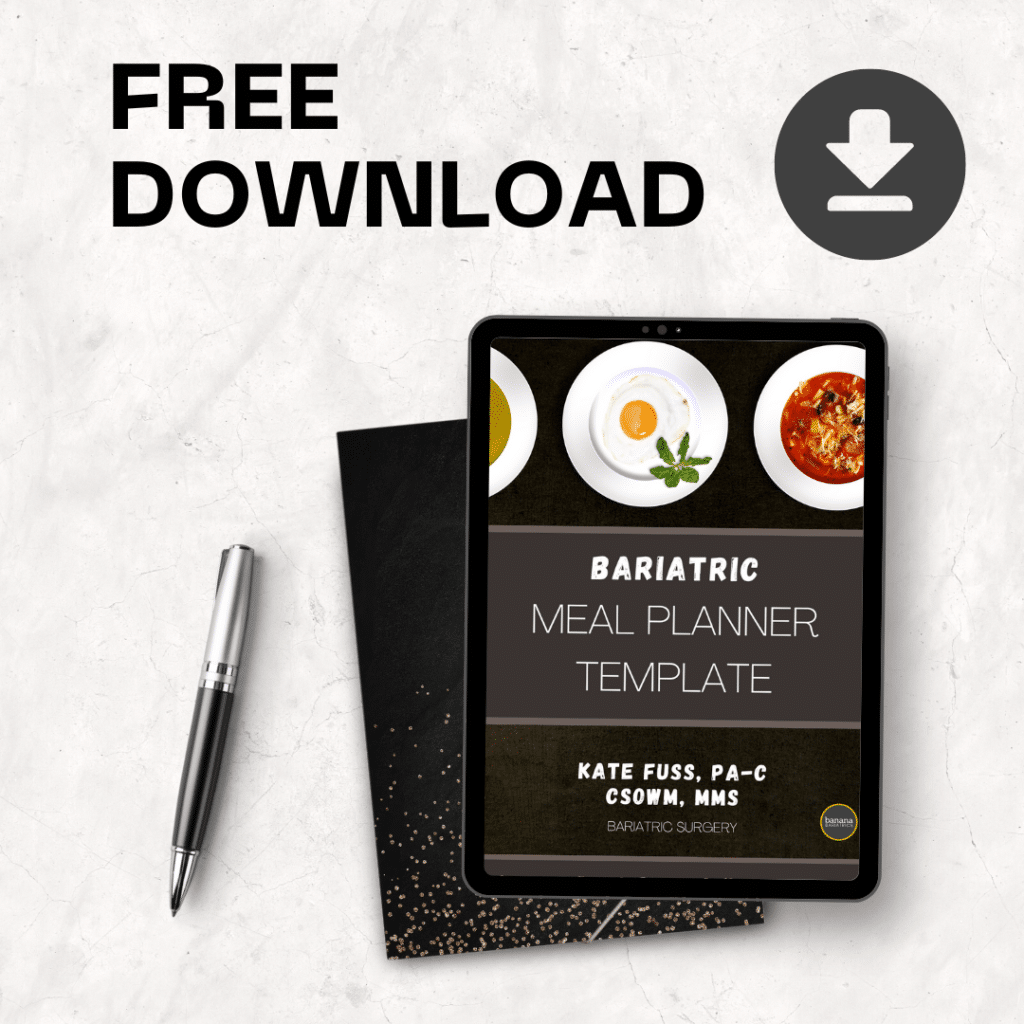
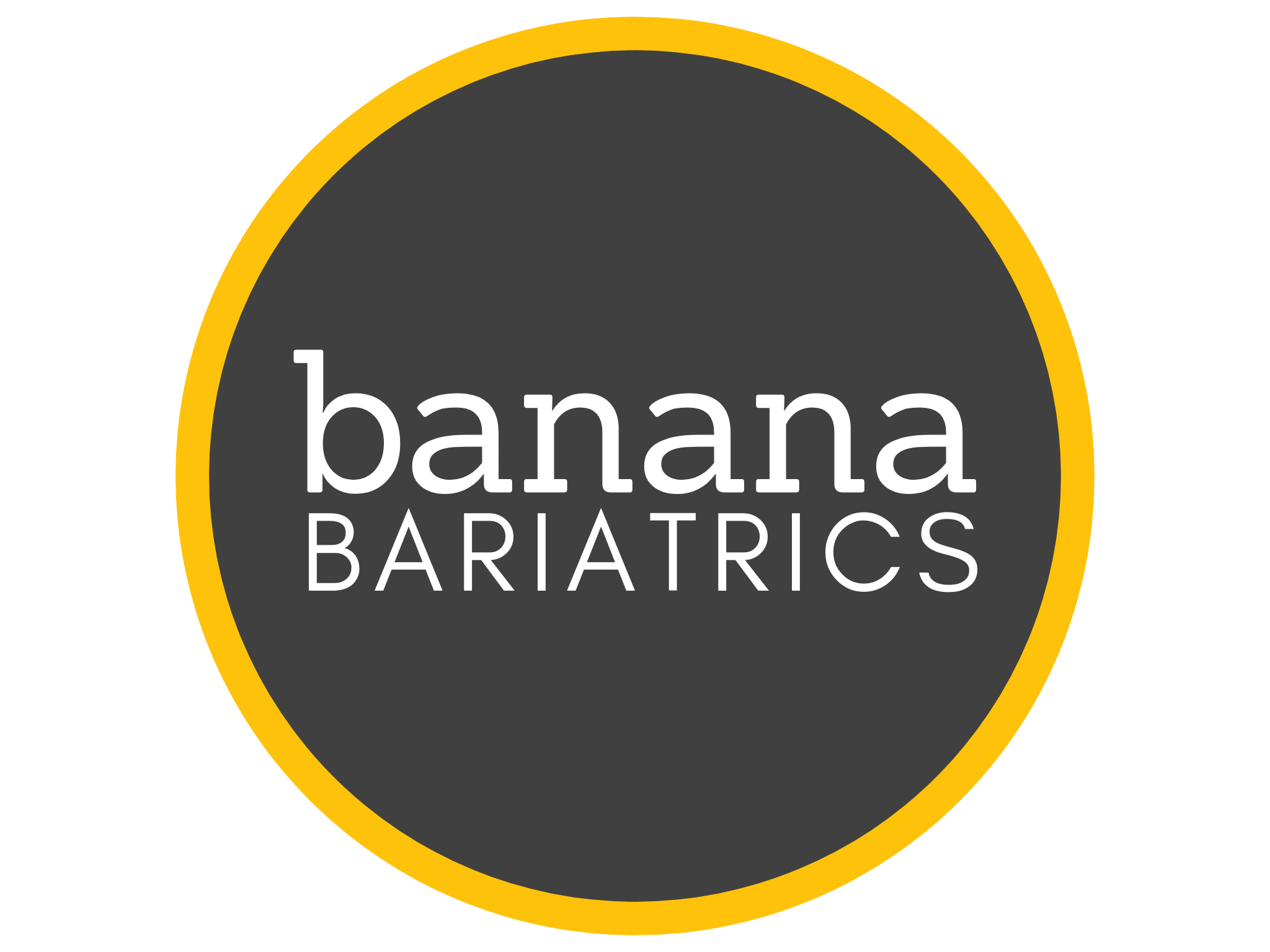
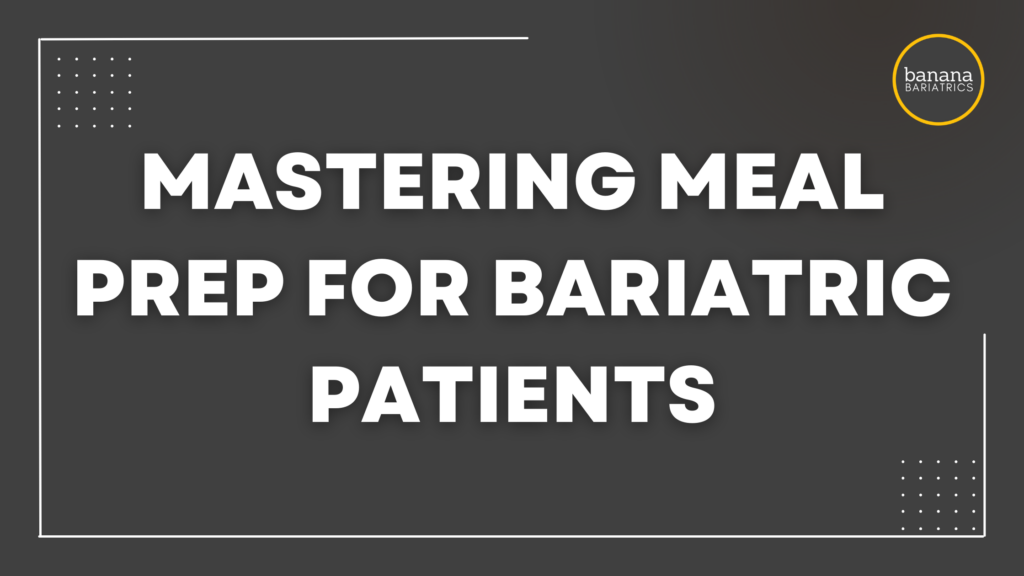
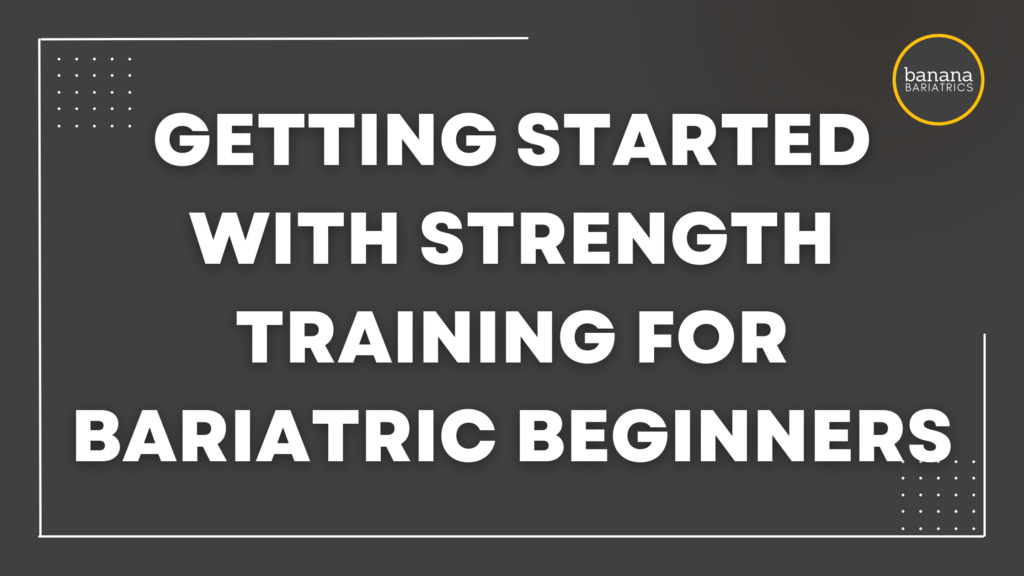
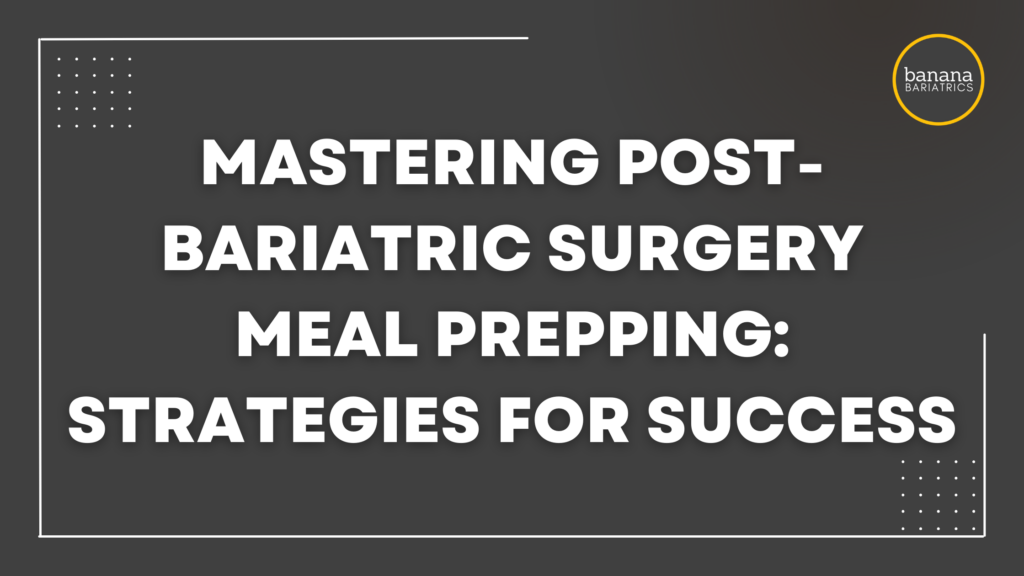

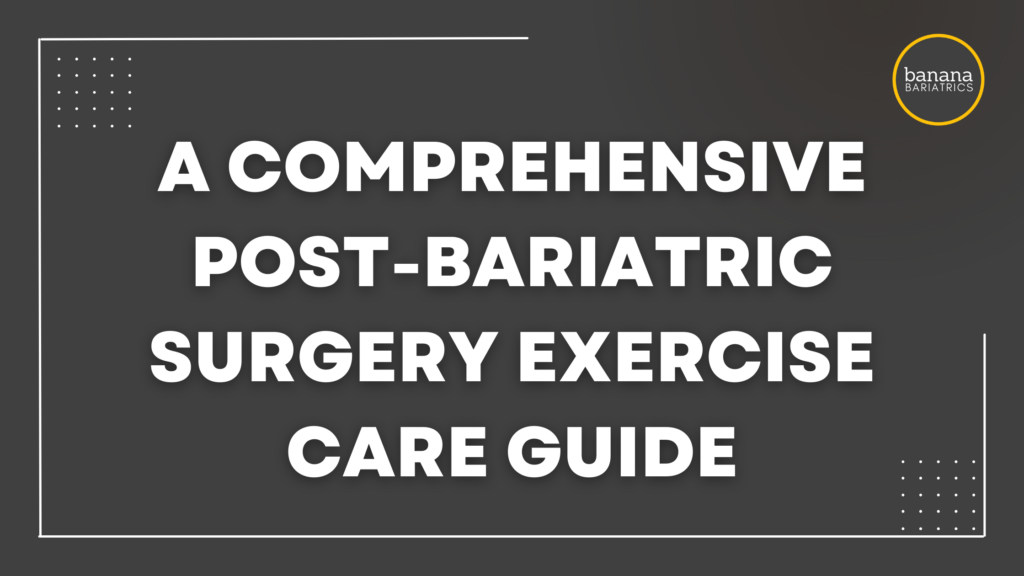
Responses